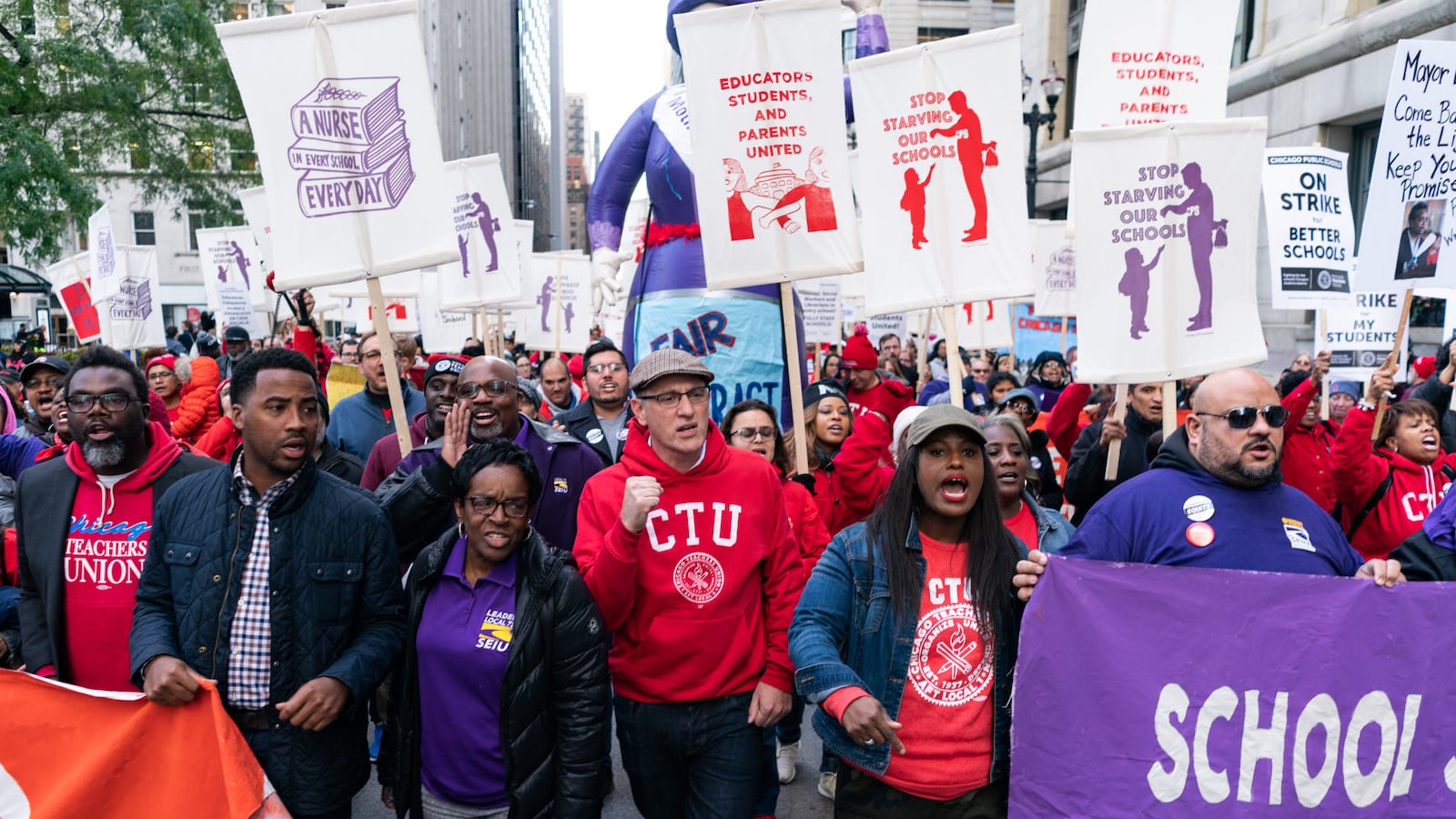Two leaders of the Chicago Teachers Union announced Wednesday that they were personally endorsing Sen. Bernie Sanders for the Democratic presidential nomination.
“Educators in Chicago’s public schools fight for their students, and their students’ families and communities,” said Jesse Sharkey, the union’s president, in a statement sent out by the Sanders campaign. “No other candidate has put forth a better plan to make that fight a reality than Bernie Sanders.”
“Black mothers and educators like me need a candidate that will fight for all our students,” said Stacy Davis Gates, the union’s vice president. “For these reasons and so many more, I’m happy to say that I’m part of the revolution, and I urge my fellow educators to stand with Senator Bernie Sanders for the Democratic primary nomination.”
The show of support is the latest in a flurry of personal endorsements from top teachers union leaders, even as the unions they run have hesitated to get behind a single candidate.
Randi Weingarten, the head of the American Federation of Teachers, personally endorsed Sen. Elizabeth Warren last week after her union encouraged members to support former Vice President Joe Biden, Sanders, or Warren. Another top AFT leader, Lorretta Johnson, has endorsed Biden. New York City teachers union leader Michael Mulgrew did too, even though his union is sitting out the primaries.
Experts say it’s uncommon to see labor leaders making personal endorsements like these. Usually, candidates seek union support because of the valuable financial contributions, volunteer support, and votes the unions can marshal.
“The institutional endorsement is what’s meaningful, and that’s what Democratic party candidates desperately want and seek,” said Robert Bruno, who directs the labor education program at the University of Illinois Urbana-Champaign.
But those endorsements have been tough to come by in many cities, including Chicago. A few weeks ago, a large body of Chicago teachers union members voted not to endorse Sanders and to remain neutral in the primaries, in part because educators were divided in their loyalties between Sanders and Warren. Both candidates stood in solidarity with Chicago teachers during their 11-day strike last fall.
Other local teachers unions have hesitated without a signal from one of the major national unions, which changed their processes for 2020. In the run-up to the 2016 election, the AFT and the National Education Association both issued early endorsements for Hillary Clinton during that election cycle, angering some members who thought the unions didn’t give Sanders enough consideration.
This cycle, the AFT — to which New York City and Chicago teachers belong — has said its local and state affiliates can make their own primary endorsements, but many have shied away from choosing from within a crowded Democratic field. (Some notable exceptions include the teachers unions in Los Angeles and Clark County, Nevada, which both endorsed Sanders. The Boston teachers union and one large Massachusetts teachers union endorsed Warren.)
With the country’s national and large local teachers unions sitting on the sidelines, wary of making a divisive official endorsement, it makes sense that some of their leaders are issuing their own endorsements, said Jon Shelton, an associate professor of democracy and justice studies at the University of Wisconsin-Green Bay.
“Teachers unions and union leaders of all kinds are very much invested in the future of the Democratic party,” said Shelton, who wrote a book about teachers unions. “We have a contested primary along ideological lines. You have a lot of leaders who have their own personal opinions and they obviously feel as if they want to be able to weigh in.”
Whether these personal endorsements carry much weight, though, remains to be seen. There’s also the possibility that they could alienate educators who wanted their union either to stay neutral or to conduct a more thorough endorsement process.
Bruno said while the candidates could benefit from having “well-respected people who’ve been around a while and have worked hard on behalf of their members” at their side at campaign events or speaking for them as surrogates, it’s a “far cry” from having the full weight of the union thrown behind them.
“I don’t think these endorsements are meaningless, they matter,” Shelton said, “but I don’t think that any individual really is a game-changer.”


